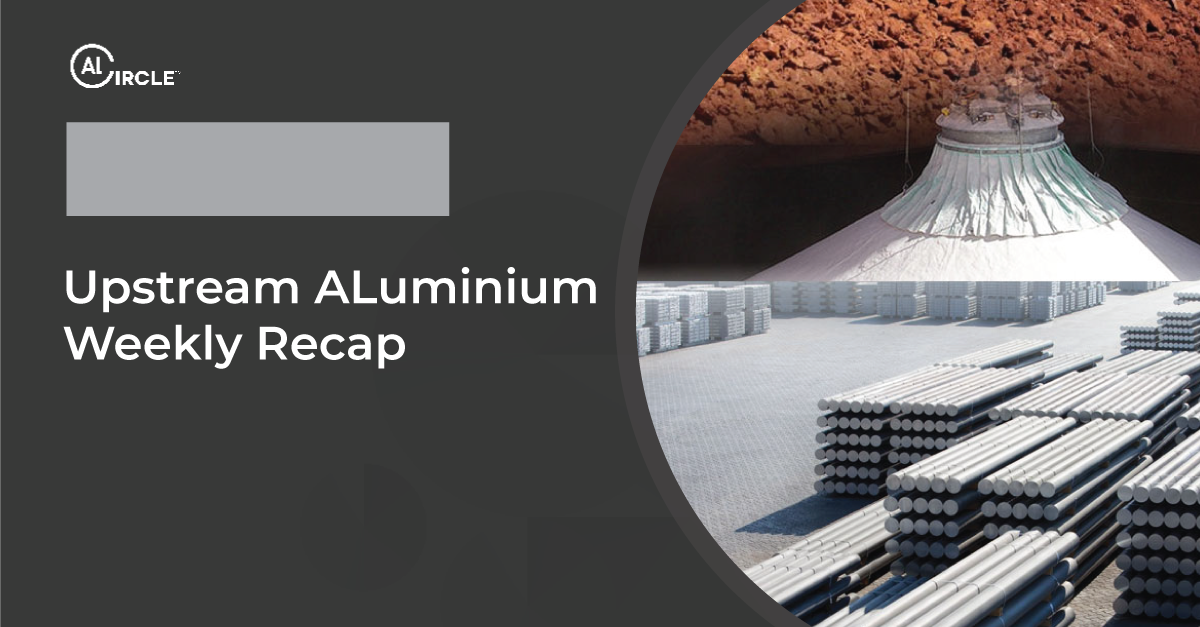This week the Indian aluminium industry has been under the spotlight for various reasons. To begin with Indian conglomerate Vedanta Aluminium has embarked on a new project worth INR 1,28 lakh crore (US$ 15.42 billion) to boost Odisha’s economy. The company is planning to set up a 3 million tonnes per annum (MTPA) aluminium smelter along with a 4,900 MW captive power plant in Dhenkanal. On the other hand, Anil Agarwal, Chairman of Vedanta, has outlined the company’s vision for its next phase of growth, branded as “Vedanta 2.0.” Alongside this announcement, the company reported its record-breaking FY25 revenue and EBITDA, while also detailing its future expansion plans and ongoing demerger progress. On the other hand, due to the ongoing geopolitical tensions between Israel and Iran, the Indian aluminium industry though not directly affected is experiencing ripple effects in pricing. In a surprising development, aluminium prices in India have dropped to INR 242 per kg, reflecting global market pressures intensified by currency fluctuations and rising oil costs. In summary, this week has marked a pivotal moment for the Indian aluminium industry- really? Read below to uncover more.

On June 19, major Indian aluminium companies witnessed a notable drop in share prices, with the Nifty Metal index slipping by over 0.5 per cent. Hindalco Industries closed down by 0.76 per cent, while NALCO saw a sharper decline of 2.87 per cent. The downturn is largely attributed to ongoing geopolitical tensions, a strong US dollar, and investor profit-taking. Read to know more.
Canada’s outreach-style summit under PM Carney showcased its global ambitions by including India and others beyond the G7. While India’s presence advances Canada’s strategic trade diversification, it also reignites domestic and diaspora-level concerns, particularly in light of past diplomatic strains. Read to know what and more
Due to the ongoing geopolitical tensions between Israel and Iran, the Indian aluminium industry though not directly affected is experiencing ripple effects in pricing. In a surprising development, aluminium prices in India have dropped to INR 242 per kg, reflecting global market pressures intensified by currency fluctuations and rising oil costs. The sequence of events has unfolded as follows: a military clash between Israel and Iran has disrupted oil supply chains in the region, triggering a sharp reaction in global markets. As a result, India’s Sensex has plunged – Click here to know more.
In response to the United States imposing a steep 50% tariff on Canadian steel and aluminium imports, Ottawa is swiftly crafting a self-reliant economic strategy that could redefine North America’s metals supply chain. Central to this shift is a proposed ‘Buy Canadian’ policy—an industrial safeguard aimed at protecting domestic producers and securing jobs by requiring the use of Canadian metal in government procurement. While Prime Minister Carney has kept Canada’s negotiation tactics under wraps, Minister Joly’s remarks suggest a dual-track approach – Read to know more.
High-level trade talks between the United States and China resumed in London, with the second day of negotiations taking place on June 10 at Lancaster House. Following months of rising tensions and tit-for-tat trade barriers, the negotiators announced a ‘framework agreement’ a non-binding yet symbolic arrangement aimed at supporting the 90-day tariff truce established in Geneva this May. Although the framework lacks legal enforceability, it presents a possible path toward de-escalation in a trade war that has disrupted supply chains across key sectors such as aluminium, electronics, defence, and electric vehicles. Click here to know more
A combination of factors including rising retail sales in China, low inventory levels, and a spike in bauxite prices has driven the LME aluminium benchmark price up to USD 2,530 per tonne, its highest level since the start of the second quarter of 2025. Read to know why.
Other significant news under the primary segment
In cutting-edge sectors like aerospace and space exploration, materials are required to be lightweight, highly functional, and capable of withstanding extreme temperature variations. Shape-memory alloys have emerged as strong contenders, thanks to their exceptional strength, durability, and unique superelastic properties that allow them to recover their original shape after deformation. Click here to know more.
Aluminium Bahrain B.S.C. (Alba), the world’s largest single-site aluminium smelter, has announced the promotion of Saleem Helal Ali Yateem to Acting Manager of Casthouse Services. Since joining Alba in 2008 as a Senior Mechanical Engineer, Saleem has consistently showcased strong dedication and outstanding technical acumen. He has played a pivotal role in overseeing complex maintenance operations and spearheading significant capital expenditure projects.
A celebratory atmosphere surrounds Speira as it upgrades its Grevenbroich and Töging plants with the installation of the first of four advanced recycling furnaces. These state-of-the-art units replace older systems and boast a combined capacity of 25 tonnes. The goal? To efficiently recycle “low-grade” materials such as heavily contaminated scrap and dross generated during the melting process. Click here to read more.
China’s wrought and unwrought aluminium imports in May 2025 showed a contrasting trend to April. In May, imports increased year-on-year but dipped compared to the previous month. In contrast, April recorded a month-on-month rise but a decline compared to the same period in 2024. Click here to read more.
What happened under the bauxite segment
A newly appointed governing board has been inaugurated for the Ghana Integrated Aluminium Development Corporation (GIADEC), signalling a strengthened commitment to advancing the nation’s bauxite and aluminium sector. This broader push for empowering GIADEC to make Ghana’s aluminium industrial an ambition come true is nothing new as previously in early 2024 then President of Ghana Nana Addo Dankwa Akufo-Addo had already talked about the same goal. Click here to know more.
Shares of VBX, a newcomer to Australia’s bauxite sector, surged on its ASX debut following a successful USD 10 million IPO, fuelled by strong investor confidence in its promising Wuudagu project in Western Australia. Trading under the ticker VBX, the stock opened and quickly rose by 15%, reaching USD 0.69 by 11:11 a.m. on June 17. Click here to read more.
According to the regional prosecutor’s office, two workers were injured and hospitalised after a wall collapse at a bauxite mine operated by a subsidiary of Russian metals producer Rusal (RUAL.MM) in the Urals. The incident occurred at a depth of 1,172 metres (3,845 feet) inside the Cheremukhovskaya-Glubokaya mine, which is owned by Rusal’s subsidiary, SUBR.
US bauxite imports in the first quarter of 2025 saw declines both year-on-year and quarter-on-quarter, reflecting the country’s continued shift away from primary aluminium production toward increased use of recycled materials. This strategic move has led to a reduced reliance on imported bauxite. Click here to read more.
Conclusion
This week, the upstream aluminium sector has witnessed a mix of ambitious developments, market corrections, and geopolitical spillovers. On one hand, Vedanta’s massive INR 1.28 lakh crore investment signals India’s bold push to scale aluminium smelting capacity and secure energy independence, aligning with its broader industrial growth under the “Vedanta 2.0” vision. On the other, macroeconomic and geopolitical pressures particularly the Israel-Iran conflict and trade uncertainties involving Canada, China, and the US have triggered aluminium price volatility and shaken investor sentiment.
















